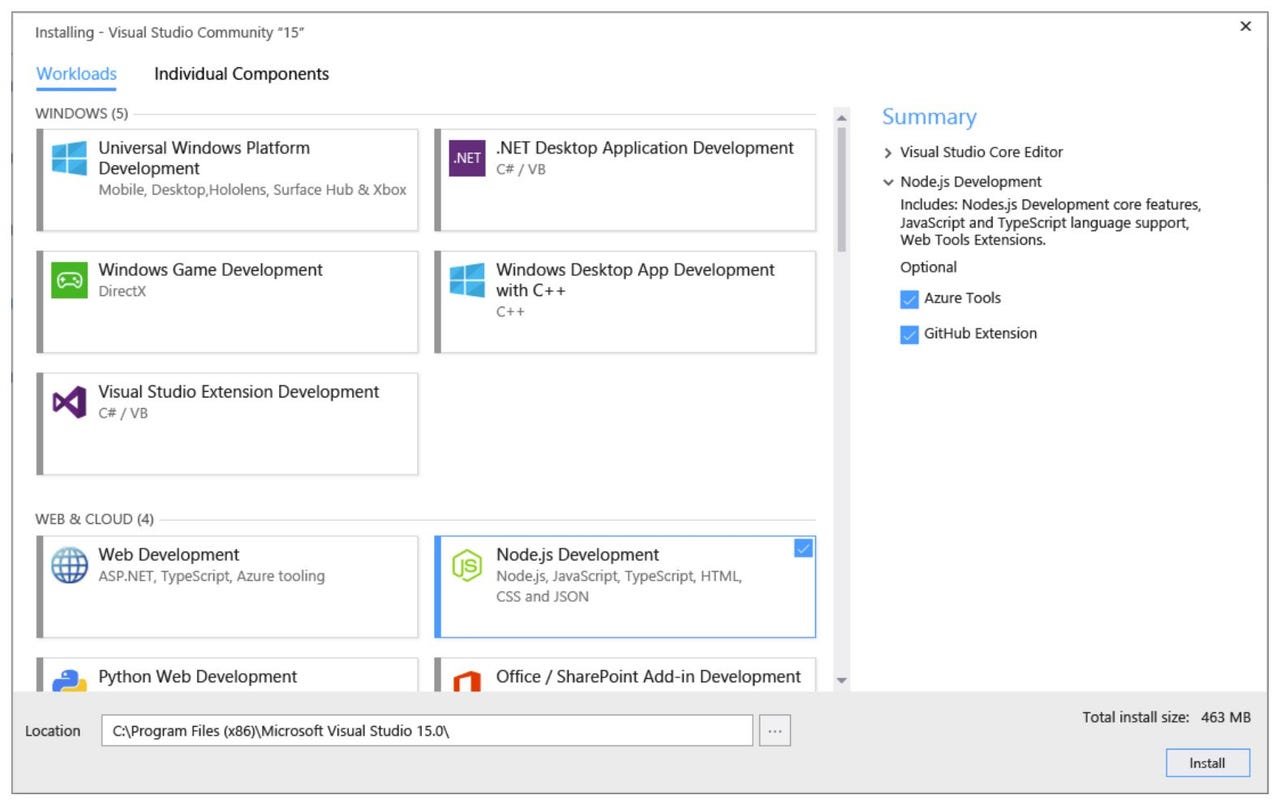Microsoft takes another step toward speeding, tailoring Visual Studio installations

Microsoft is continuing its work to make Visual Studio installations faster and more tailored.

At Build 2016, Microsoft shipped its first experimental preview of the new installation experience coming to Visual Studio '15, the next version of Visual Studio (which may or may not ultimately be christened "Visual Studio 2016," if it ships this year, as some believe it will).
Microsoft is preparing to take the next step by adding more options to VS'15 to take advantage of the "new low-impact installation model," company officials said on June 17.
"Later this summer" there will be another test version of VS'15 that includes the new installer UI. This new UI will allow users to choose from 17 tailored "stacks," or "workloads," so that they can install just the VS components they need.
See also
Devs will be able to install only the VS components they need for specific tasks, like Universal Windows Platform development, cross-platform mobile development with .NET (including Xamarin), Linux and IoT development with C++ and more.
"Visual Studio will always have an advanced setup option where you can install features at a pretty granular level, and in Visual Studio "15" we'll give you even more control than you have in VS today. But most often, customers tell us they just want to install C++ for desktop development or C# for web development - a 'workload,'" according to today's blog post.
The current list of the tailored installation workloads:
1. Universal Windows Platform development
2. Web development (including ASP.NET, TypeScript, Azure tooling)
3. Windows desktop app development with C++
4. Cross-platform mobile development with .NET (incl. Xamarin)
5. .NET desktop application development
6. Linux and IoT development with C++
7. Cross-platform mobile development with Cordova
8. Mobile app development with C++ (including Android, iOS)
9. Office / SharePoint add-in development
10. Python web development (including Django and Flask support)
11. Data science and analytical applications (including R, F#, Python)
12. Node.js development
13. Cross-platform game development (including Unity)
14. Native Windows game development (including DirectX)
15. Data storage and processing (including SQL, Hadoop, Azure ML)
16. Azure cloud services development and management
17. Visual Studio extension development
For now, Microsoft is looking for developer feedback via this survey (not through Microsoft Connect) on its planned installation approach.